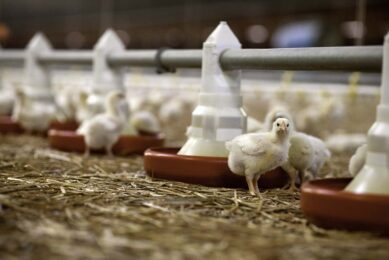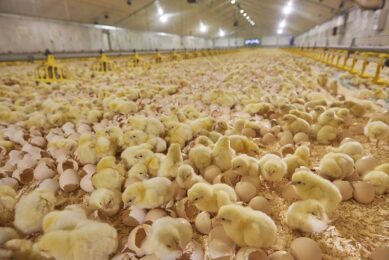EFSA’s opinion on US use of substances to kill bacteria on poultry carcasses
EFSA has assessed whether there is an increased bacterial tolerance and resistance to antibiotics from the use of 4 antimicrobial substances used to decontaminate poultry carcasses.
These 4 substances are chlorine dioxide, acidified sodium chlorite, trisodium phosphate and peroxyacids, which are presently in use in the US to kill or reduce the number of bacteria, such as salmonella or campylobacter on poultry. At present, no such substances are authorised for use in the EU, but permission may be given under EU legislation when preceded by a thorough scientific evaluation.
According to NewsFood, the European Food Safety Authority (EFSA) Panel on Biological Hazards (BIOHAZ) has concluded that, despite a long history of use, no published data exist to indicate that the four substances, within the proposed conditions of use, will lead to increased bacterial tolerance to these substances or to increased resistance to therapeutic antibiotics and other antimicrobial agents.
The Panel did, however, encourage further research into the likelihood of an increase in bacterial tolerance to these types of substances, and the possibility of their resistance to therapeutic antibiotics and other antimicrobial agents.
In 2005 and 2006, EFSA gave opinions in relation to these antimicrobial substances looking at both the safety of their use on food, as well as their effectiveness in killing or reducing bacteria. The EFSA’s Panel on additives, flavourings, processing aids and materials in contact with food (AFC) concluded that, based on available data, there was no safety concern within the proposed conditions of use.
Related link:
Join 31,000+ subscribers
Subscribe to our newsletter to stay updated about all the need-to-know content in the poultry sector, three times a week. Beheer
Beheer











 WP Admin
WP Admin  Bewerk bericht
Bewerk bericht